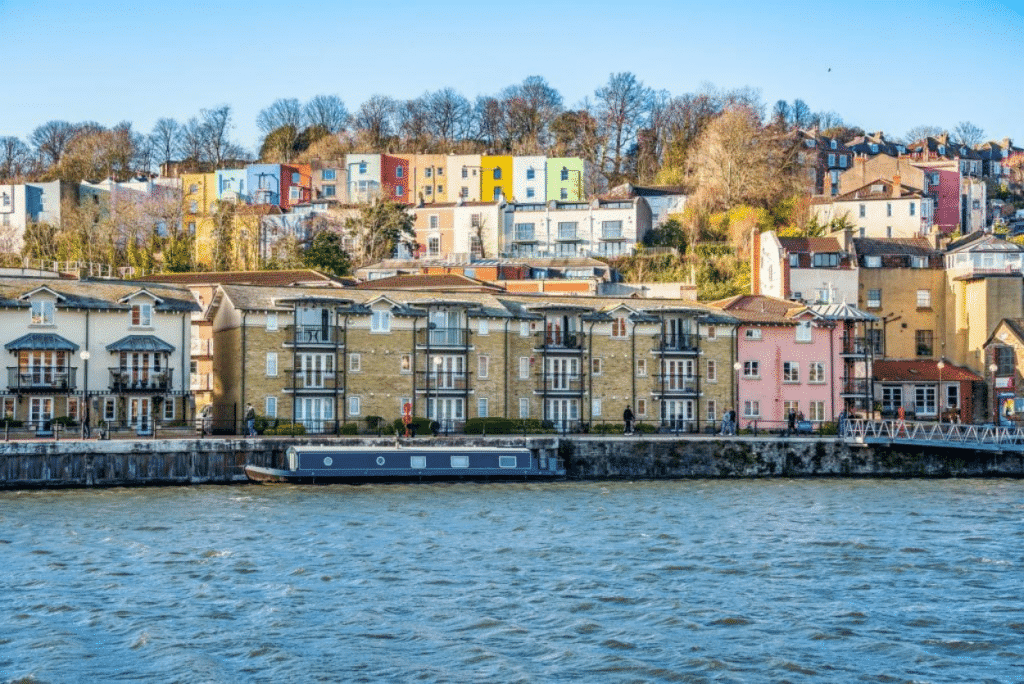
A new government-backed mortgage guarantee scheme has been launched this week, which offers access to mortgages worth 95 per cent of the price of a home and therefore requiring a smaller deposit of five per cent.
Many high loan-to-value mortgages (designed for first-time buyers) were withdrawn by major high street lenders in the past year, as lockdown restrictions were in place.
The new mortgage scheme has been rolled out to try and help more first-time buyers to get on the property ladder.
How does it work?
The mortgage guarantee scheme will run from April 2021 to December 2022.
The government will give a partial guarantee to the mortgage lender of up to 15 per cent if a borrower defaults on their repayments, which gives lenders the confidence to reintroduce these higher loan-to-value mortgages.
A 95% loan-to-value (LTV) mortgage refers to the percentage of the property’s value that is being covered by the mortgage. The remaining 5% will be paid by you as the deposit to secure the loan.
It is possible to get either a 95 per cent loan-to-value (LTV), fixed, or even a tracker mortgage – which means your interest rate will change (and therefore repayments will change) as the Bank of England’s base rate moves.
The mortgage rates so far vary across providers but are around 4% for two-year fixed rate deals right now. Lenders are also setting their rates higher for a tracker mortgage than for fixed products.
To find out more about the government-backed mortgage scheme, visit gov.uk.
Who is eligible?
The mortgage guarantee scheme is available to you as long as you are buying a primary residence (a home to live in), and not a buy-to-let investment, a holiday home or a second home.
The banks will apply the same strict stress tests to your income and repayment amounts – and credit history will be a factor, too. It now needs to be excellent, not just good.
It’s important to be aware that furlough is still a relatively new concept and mortgage providers are wary of lending to those on the scheme.
If this is your position, it may be worth waiting to get back to full-time employment before applying for a mortgage. Even if you can secure one while on furlough, you will get more favourable rates if you can show you have a steady income.
It may be a struggle for self-employed first-time buyers too, even with three years’ worth of healthy accounts. It’s best to seek advice from a mortgage advisor as early as you can to see what your options will be.
READ MORE: Top tips on sorting out your finances before applying for a mortgage
How much will I need to earn to get a 95 per cent mortgage?
Usually, the amount you’ll be able to borrow will vary depending on the lender and the assessment criteria they use. Some lenders place a cap of around 4.5 times your annual or combined income.
However, later this month, Nationwide Building Society is launching its ‘Helping Hand’ mortgage, which means you can borrow at the higher rate of up to 5.5 times your income if you choose a five or ten-year fixed rate mortgage of up to 90% loan-to-value.
The change means if you are a couple with a joint income of £50,000 and have managed to save a 10% deposit, you will be able to borrow up to £275,000, rather than the £225,000 you could borrow previously, assuming there are no other costs impacting your affordability. However, it’s worth noting that this mortgage is not available if you are self-employed.
The new mortgage guarantee scheme makes the biggest difference where house prices are low.
If you are buying in London, the cost of property is so high that for an entry-level home, even a five per cent deposit could be around £20,000 and will require an annual income of close to £90,000.
However, in other regions, where house prices are more relatable to earnings, the scheme will be more of a help. If you are buying a property in the North East, for example, securing a 95 per cent mortgage will require a deposit of just above £5,000 and a salary of around £24,000.
READ MORE: Find out more about the different types of mortgages and how they work
Which lenders are offering 95% mortgages?
Lloyds, Santander, Barclays, HSBC and NatWest are starting to offer products this week and Virgin Money will do so next month.
However, some lenders such as Halifax (part of the Lloyds Banking Group) and Barclays have said these products will not be available on new-build properties and flats.
So it is also worth checking to see which lenders are offering a 90 or 95 per cent mortgage that is not part of the scheme, as there may be more flexibility on what type of home you can buy with it.
Some lenders have started offering a long term 40-year fixed-rate mortgage with others expected to follow, giving first-time buyers more certainty than ever before.






